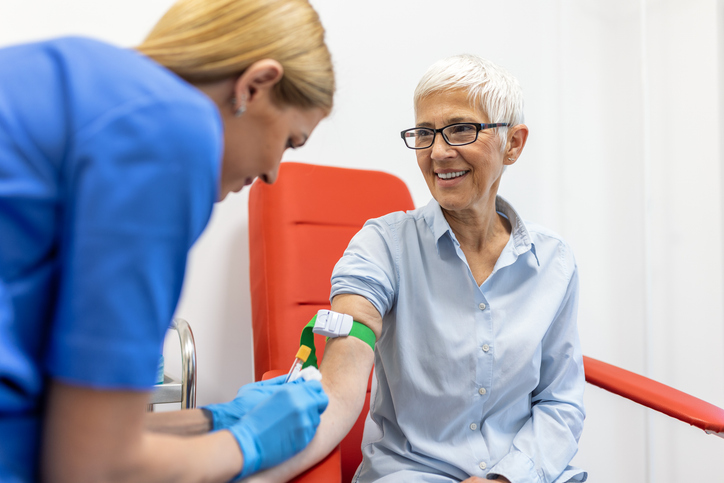Syndicated by Being Patient
The internet is abuzz with claims that blood tests could predict dementia 15 years out or even spot Alzheimer’s before symptoms set in.
The gold-standard methods for diagnosing Alzheimer’s up to now have been lumbar punctures and PET brain scans, but they can be uncomfortable, expensive, or hard to access. That’s why scientists developed a range of new methods to help diagnose the disease at the earliest stages, including measuring proteins in the blood that act as a proxy measurement of pathology in the Alzheimer’s brain.
Though there are many blood tests on the market right now, there are still some issues surrounding these tests that patients should be aware of when making sense of their results. Here are three things patients should know before getting an Alzheimer’s blood test.
1. Alzheimer’s blood tests can’t actually diagnose Alzheimer’s
The majority of blood tests for Alzheimer’s aren’t precise or telling enough yet to replace a lumbar puncture or amyloid PET scan. Right now, diagnosing Alzheimer’s disease requires a doctor to take a family history, run a battery of neurocognitive tests, and then confirm the presence of certain pathology in the brain that appear in people with Alzheimer’s. Blood tests are only one part of the diagnostic process.
2. The tests aren’t standardized — and results will be hard to understand
If you take a blood test to check for blood sugar, vitamin deficiencies or hormone levels, the tests come with standardized thresholds that can tell you whether or not you’re at risk of developing a disease or have some sort of deficiency. There are many blood-based biomarkers of cardiovascular diseases and diabetes that are well-established.
But it is still early days for Alzheimer’s blood tests. There are no universal standards in place yet for assessing the results, and companies have differing ideas of what the healthy range for one of these blood biomarkers should be.
3. After testing, there’s no clear protocol for what to do next
Consider that 25 percent of healthy older individuals develop the telltale amyloid plaques in the brain but never develop Alzheimer’s. If these individuals had their blood taken when they were in their 20s, 30s, or 40s, they too might have increased levels of Alzheimer’s biomarkers.
So far, there isn’t a lot of research about what high levels of these biomarkers might mean earlier in life or whether there is any way to use this information to reduce one’s risk of developing the disease. There is nothing actionable that individuals with high levels of these biomarkers could do.













